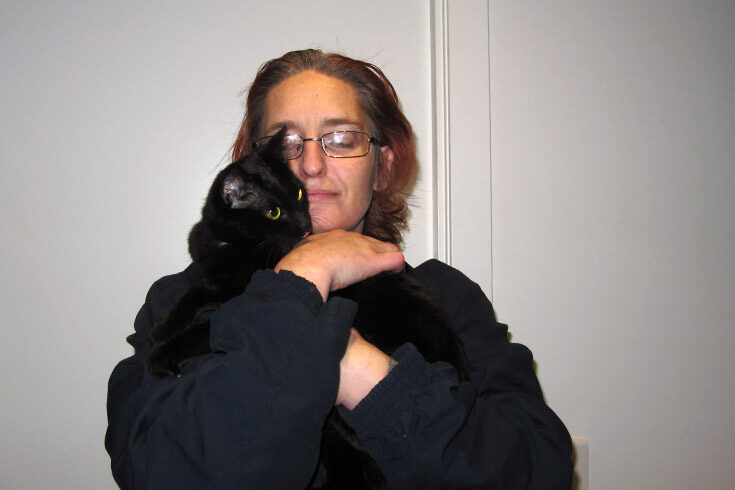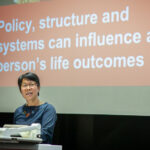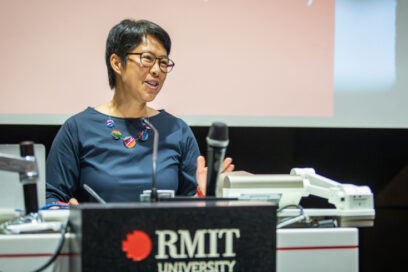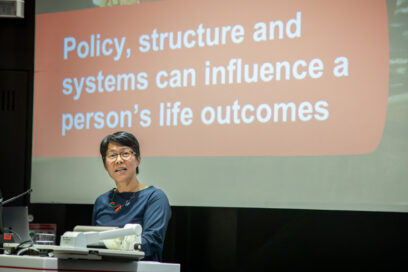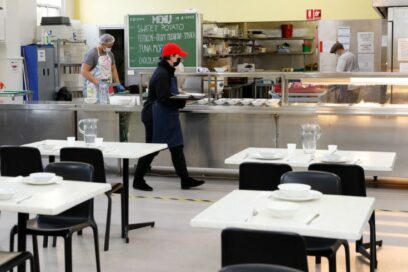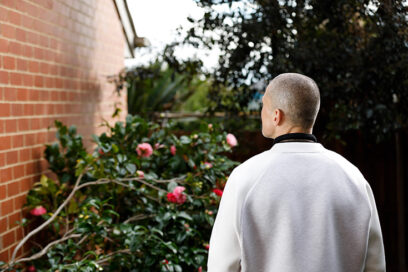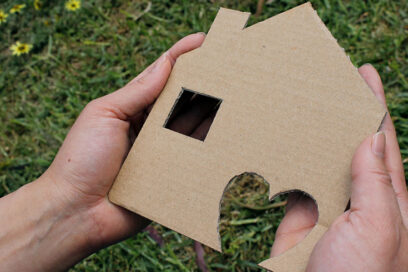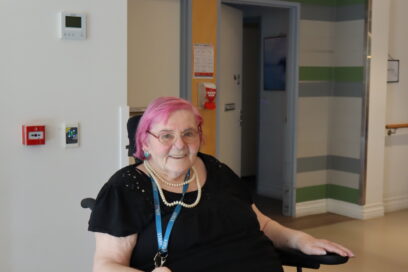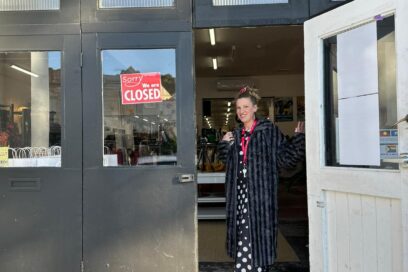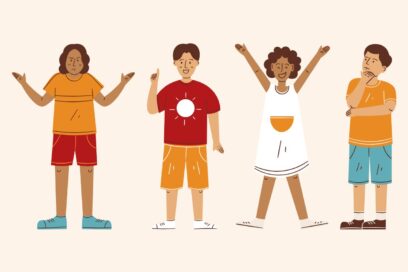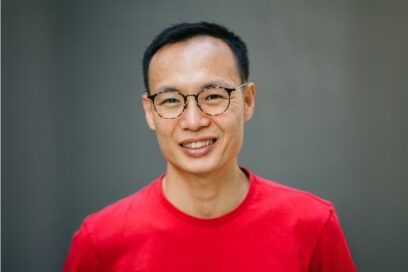“A lot of the time, I wouldn’t consider myself homeless, but the actual meaning of the word – yes. Stable housing, I haven’t had for a long time, just short-term here, short-term there.”
Mandy is in her late thirties and is now living in stable and supported housing thanks to her involvement with Sacred Heart Mission’s Journey to Social Inclusion (J2SI) program. J2SI provides three years of intensive case management alongside permanent housing for people who have experienced chronic homelessness.
Mandy first experienced homelessness as a teenager. After a relocation from the country to the city, homelessness “made its way through our family,” she says. Soon, she found herself on her own and without support, which is when she started couch surfing. Mandy lived with instability for a long time and was in and out of the workforce as a result. Mandy talks about the dual challenges of not having roots – though you can move on if you’re unhappy, “not being stable is hard and it takes it’s a toll on you,” she says.
When she was couch surfing, she felt like a “burden” on her friends, so she started sleeping rough. One of the most challenging things about her experience of homelessness was getting the right support. “Until I was actually on the streets, it was really hard to get advocacy to get housing,” she says. “Because the housing places are so few and far between and you have to be there at the crack of dawn, it’s hard. Whereas when you’re rough sleeping, services are more understanding.”
Mandy joined the J2SI program … and turned her life around
Mandy rough slept for approximately two years before she was referred by Launch Housing’s women’s crisis accommodation program to J2SI in 2019. In contrast to her prior experience, Mandy found the referral process to J2SI very easy, and they were able to help her access a private rental head-lease (subsidised) property and then later permanent housing.
Mandy had never heard of a program like J2SI before. “They don’t kick you out after a few months, or house you and then just leave you. With J2SI I kept in touch with the real world.”
She wishes other people understood that “homelessness is not a choice, and if it is a choice, it is definitely not the easy one. Most people just judge it on face value and that’s far from what it really is.”
During her first two years in stable housing with J2SI, Mandy worked to address her hoarding issues and adopted two cats, Oscar and Little Bug. The experience helped her learn how to manage a tenancy which she had never done before. Mandy is now settled into her permanent home, which is in an ideal location where she can ride her bike everywhere.
Mandy loves her new place. “It’s new, it’s modern – and it’s mine,” she says.
Without J2SI, Mandy says she would have gone back onto the street – she wouldn’t have been able to access private rental properties on her own, and she wouldn’t want to return to the “awful” rooming houses where she had stayed in the past.
Helping others with similar experiences is Mandy’s dream
Mandy’s case manager Heli has been working with her for around two years, and she says, “Mandy has always been resourceful and independent. She’s more relaxed in her new home and she has completed Foundations of Peer Work course and has enrolled in a Certificate IV in Community Services independently.”
Mandy says that she would like to work in the community sector one day, perhaps as a peer worker, helping those experiencing homelessness or with mental health challenges not unlike her own. In addition to more programs like J2SI, Mandy says government needs to do more to ensure everyone is housed properly.
“We just need enough social housing for everyone, it’s not rocket science!”
Reflecting on how much things have changed for her over the last three years, Mandy is most proud of having her own place, her cats and “still being here.”
“It’s a complete 180 on how things were five years ago – I’ve got some stability now, I have a roof over my head that I can’t lose. I don’t have to worry about so many things – like where I’m going for a shower, or where to eat, or how cold it’s going to be tonight.”


